QUBES Near You
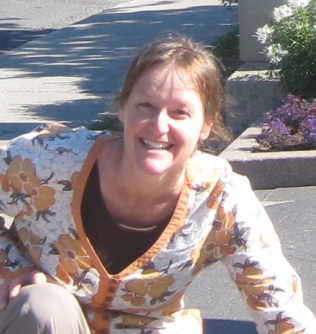  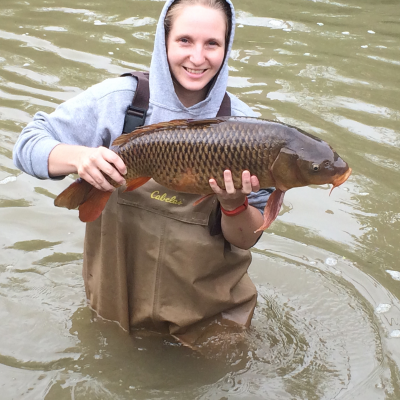
Kristin Jenkins (QUBES PI and Director of BioQUBEST, pictured above left), Drew LaMar (QUBES PI and Director of CyberInfrastructure, pictured above middle), and Nicole Chodkowski (QUBES Postdoctoral Researcher, pictured above right), attended the 2018 National Association of Biology Teachers (NABT) Conference in San Diego on Nov. 8-11, 2018. They presented a poster titled, QUBES-ESA partnership uses online Faculty Mentoring Networks to prepare faculty for teaching quantitative biology to undergraduates, which was also showcased in a recent Resource of the Week. Read the abstract and view the poster here.
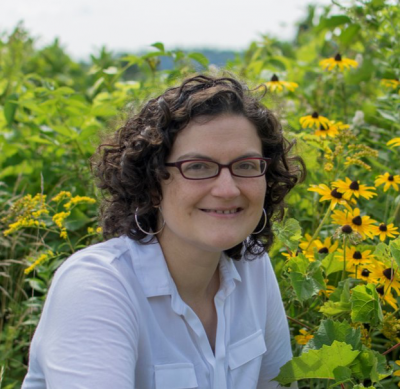
Carrie Diaz Eaton (QUBES PI and Director of QUBES Alliance, pictured above) attended the Blackwell-Tapia Conference 2018 on Nov 8 - 10, 2018 in Providence, Rhode Island.

Applications are open for HITS Case Fellows and HT Researchers
High-throughput Discovery Science & Inquiry-based Case Studies for Today’s Students (HITS) is an NSF RCN-UBE that seeks to improve student quantitative skills and participation in high-throughput discovery. Applications are now open for HITS Case Fellows and HT Researchers. Learn more about these opportunities below.
Apply now to become a HITS Case Fellow!
The effective design, implementation, and analysis of high-throughput (HT) research require fundamental quantitative skills. The NSF-RCN UBE: HITS seeks to improve student quantitative skills and participation in high-throughput discovery by creating novel case studies that demystify HT approaches and promote discovery science to reinforce cornerstone STEM concepts and quantitative skills in the college classroom. Faculty and postdoctoral fellows devoted to the use of case studies and problem-based learning pedagogies are encouraged to apply to become HITS Case Fellows.
HITS Case Fellows receive:
-
Support to attend summer HITS workshops
-
Yearly stipend (two years)
-
Exposure to different high-throughput (HT) approaches and graduate students, faculty, and postdoctoral fellows from different fields.
-
Opportunity to design novel case studies using authentic datasets that can be implemented in a variety of courses.
-
Case Fellows are expected to attend two summer workshops and participate in monthly virtual check-ins to continue making progress on their cases.
Apply online by January 18th, 2019 at https://qubeshub.org/community/groups/hits/get_involved.
Apply now to become a HITS High-throughput (HT) Researcher!
Are you a graduate student or postdoctoral fellow using a cutting-edge and high-throughput assay you would like to share with others? Help teach today’s students about high-throughput discovery science by participating in the NSF Research Coordination Network HITS.
Funding is available for graduate students and postdocs using high-throughput (HT) approaches in their research to attend the yearly HITS workshop. The HITS workshop will include scientific sessions with guest speakers using and developing novel HT approaches. Interaction with these experts will provide you with opportunities to learn novel HT assays, apply new 'big' data analysis methods, and collaborate on future research.
The second day of the workshop will include training in the design and evaluation of educational case studies. HT Researchers invited to the conference will work with educators in the design and implementation of case studies using HT approaches. The third day of the HITS workshop will have dedicated time for groups of researchers and faculty teaching courses to work on the design of novel case studies using authentic data. After the workshop ends, groups will continue to work on their case studies using the QUBES online hub for monthly check-ins. Groups will then present their results at the next summer workshop and publish case studies using authentic techniques and data. HT researchers selected to be part of the HITS network will receive a $1,000 stipend and funds to attend the workshops.
Apply to become a HITS HT Research at https://qubeshub.org/groups/hits/get_involved.

Writing a proposal for an education project? Learn how the QUBES infrastructure can support your project.
The QUBES project has a comprehensive project support infrastructure, built by and for STEM educators, that addresses many of the challenges faced by education reform projects. Please visit our Services page to learn more about how QUBES can be used to support education projects.
As a group of biology teachers and educational reformers our primary approach to providing resources and services involves creating opportunities for faculty to adopt a scholarly approach to teaching. That means that the QUBES platform is designed to help us do the work we need to do more efficiently, share it with others, and track its impact. This infrastructure can be adopted and customized by projects, communities, and working groups to help organize your participants, disseminate your products, collaborate with experts, and collect data for evaluation and research.
QUBES can be used as a meeting support site helping with recruitment, reaching a broader audience, and generating persistent products. See for example:
QUBES can be used as web-based, working space for you project where you can build a collaborative community and disseminate information about your work. See for example:
Many groups that already have a web presence keep a site on QUBES that acts as a portal to their materials and helps them connect with and raise awareness within the broader QUBES community. See for example:
Learn more about how QUBES can support your project on our Services page. If you have questions, feel free to contact Carrie Diaz Eaton, the Director of QUBES Alliance, at cdeaton “at” bates.edu.
Browse some of biology education projects who use the QUBES infrastructure to collaborate and share.
If you have an existing project, visit the QUBES Support Community for Partner Projects, which is a space where QUBES Partner Projects can learn how to take full advantage of the QUBESHub infrastructure to achieve their goals, and don’t forget to join the group!


ROW Recap and Call for Nominations
We are actively seeking nominations for the Resource of the Week (ROW), which is a new feature at QUBES where we are highlighting educational resources that are freely available on QUBES. If you have found a great resource on QUBES or would like one of your own resources featured in the ROW, we encourage you to nominate a resource by contacting Elia Crisucci (emc22@pitt.edu).
Since announcing the ROW in our last newsletter, we have featured an additional 5 resources in the ROW and we’ve rounded them up right here for your convenience. Browse the titles below and click on the images to visit the resource featured in the ROW. We hope you’ll browse all past ROWs on the ROW landing page and subscribe to the ROW to get it automatically sent to your email inbox. You do not need a QUBES account in order to subscribe!
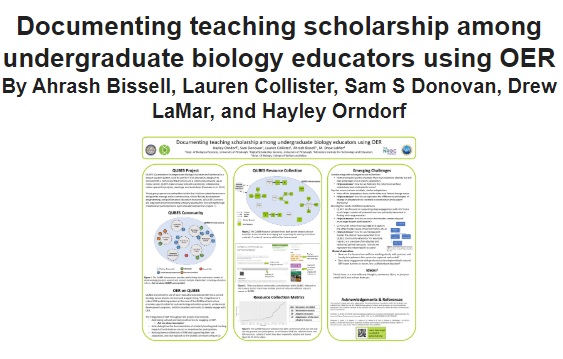
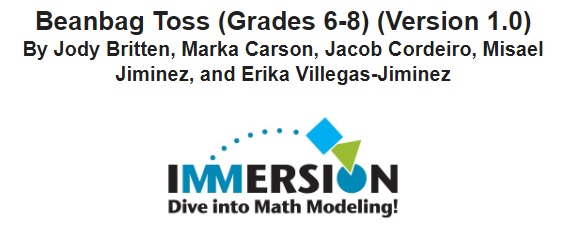
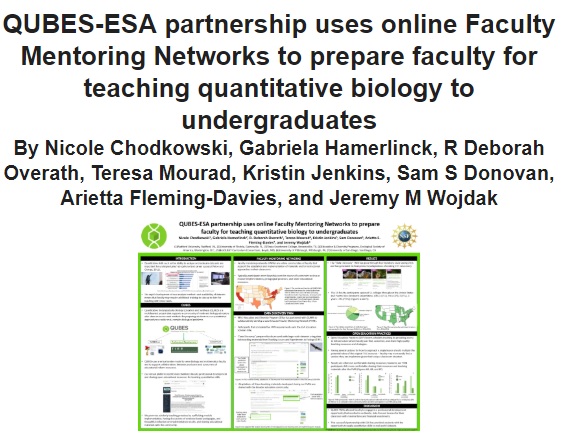
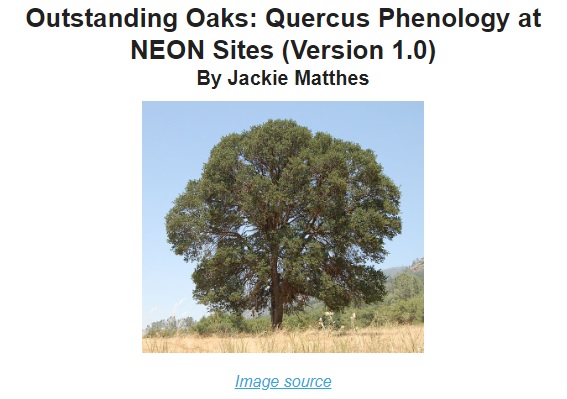
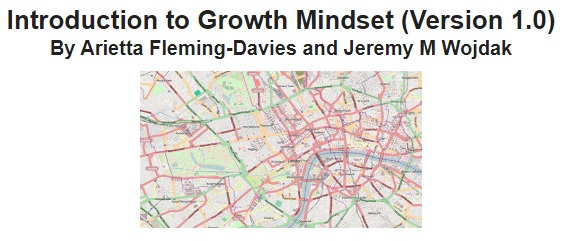
Apply now for a Spring 2019 Faculty Mentoring Network!
QUBES offers professional development opportunities called Faculty Mentoring Networks (FMNs). Several FMNs are running in the Spring 2019 semester in a variety of topics. Read about them below and apply today!
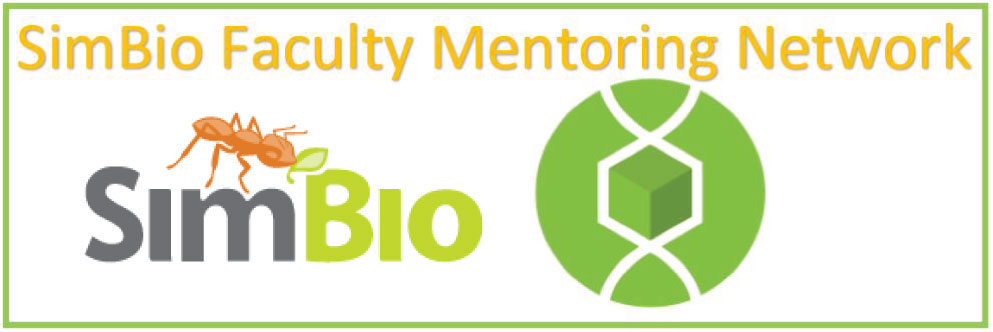
SimBio FMN
Do you teach undergraduate Ecology? Are you interested in active learning approaches that emphasize quantitative reasoning? Apply now to join us for the Spring 2019 SimBio/QUBES Faculty Mentoring Network (FMN).
Participants in this FMN will focus on building mini-case studies as classroom activities to reinforce concepts and approaches explored in SimBio’s SimUText Ecology interactive chapters. Accepted applicants will each work with mentors and other FMN participants to develop their own mini-case study. Through bi-weekly virtual sessions, participants will discuss best practices for using mini-case studies, and will critique and help improve the case studies developed by their FMN colleagues.
Applications are due November 21st, 2018. Please visit https://qubeshub.org/groups/simbio2019 for additional information and instructions on how to apply.
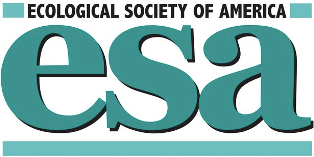
ESA Data Explorers FMN
This Spring 2019, the Ecological Society of America (ESA; esa.org) and QUBES are pleased to offer a unique networking and professional development opportunity.
Are you a community college or lower-division instructor interested in bringing data-driven lessons into your classroom but not sure where to start? If so, apply now to join us for the Spring 2019 ESA/QUBES Data Explorers Faculty Mentoring Network (FMN)! Participants in this FMN will focus on how to effectively teach students data analysis and data visualization skills using Teaching Issues and Experiments in Ecology (TIEE) modules in undergraduate biology courses. Accepted applicants will customize and implement newly designed educational modules from a wide range of ecology topics. They will also receive mentoring throughout the process, as well as collaborate with and support others in the network through biweekly virtual sessions. Other benefits include recognition as an ESA Education Scholar and a $500 award to participants who complete the FMN requirements. Funding support for the award comes from a grant to ESA from the National Science Foundation.
For more information, please visit https://qubeshub.org/community/groups/dataexplorers_2019
Registration: Applications are due by November 30, 2018. Click this link (https://goo.gl/forms/vkU9ggAWVYywPm0M2) to apply.
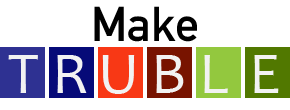
Make Teaching with R in Undergraduate Biology Less Excruciating (Make TRUBLE) FMN
This Faculty Mentoring Network is intended for undergraduate biology instructors with prior R programming experience who are interested in learning ways to teach with R effectively to students with little to no programming experience. Participants will focus on developing, implementing, and sharing modules for teaching statistical and biological concepts in R with Swirl. Swirl lessons simplify the R learning process by providing a guided, interactive experience through on-screen prompts and exercises which students answer directly in the RStudio console. Participants will learn the Swirl program, implement one existing Swirl lesson, contribute one new lesson and will leave the FMN with >10 ready-to-use Swirl lessons covering diverse biology and data analysis concepts.
For more information visit https://qubeshub.org/community/groups/make_truble
Registration: Applications are due by November 30, 2018. Click this link (https://goo.gl/forms/iDBBNeBokoIEbNPj2) to apply.

Biology Students Math Attitudes and Anxiety Program (BIOMAAP) FMN
QUBES is pleased to offer a unique networking and professional development opportunity from January– June 2019 for faculty interested in alleviating math anxiety in undergraduate biology students. Quantitative skills are essential for student success in biology, and math attitudes and anxiety can have strong effects on both persistence and performance. This mentoring network will familiarize faculty with background on how math attitudes can impact Biology students, and help participants explore a range of tools to address math attitudes and anxiety in their Biology courses.
Apply by December 1, 2018. Visit https://qubeshub.org/groups/biomaapfmn2019 for more details or to apply.

Making the Case: Using Case Studies to Increase Quantitative Biology Skills FMN
Are you interested in adopting case studies that address quantitative reasoning skills? Apply now to join us for the Make the Case: Using Case Studies to Increase Quantitative Biology Skills Faculty Mentoring Network (FMN).
Biology is undergoing a data revolution. Advances in field, laboratory, and computer technology have made an unprecedented array of data available for biologists. This is particularly true in the field of ecology. Students will need to develop not only the basic mathematical skills but also learn how to how to include and apply data analysis, collection, and presentation into their research design. During this Faculty Mentoring Network, participants will modify and implement case studies available from the national Center for Case Study Teaching In Science as a platform for introducing these important data literacy skills into biology classrooms. While doing this, you will participate in biweekly virtual sessions to collaborate with and support others in the network and receive mentoring.
Applications are due December 7, 2018. Please visit https://qubeshub.org/groups/cases2019 for additional information and instructions on how to apply.
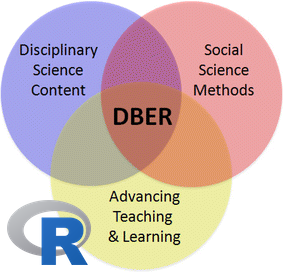
R for DBER FMN
Are you interested in learning R to be able to apply it to your education-based research? Apply now to join us for the Spring 2019 QUBES Faculty Mentoring Network (FMN).
Participants in this FMN will focus on learning how to use R, including the basics of how to get started in R, exploratory data analysis, and basic statistical techniques such as t-tests, ANOVAs, and linear regression. Accepted applicants will use R to analyze their own data set. While doing this, they will participate in 1-hour biweekly virtual sessions to collaborate with and support others in the network and receive mentoring.
Applications are due December 7, 2018. Accepted applicants will be notified by December 14, 2018. Please visit https://qubeshub.org/groups/r4dberfmn for additional information and instructions about how to apply.
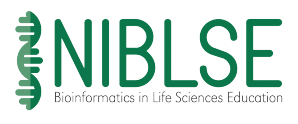
Bring Bioinformatics to your Biology Classroom: Using bioinformatics strategies to solve biology problems in introductory courses FMN
If you are a biologist, you and your students need bioinformatics! We can help you get what you need with relatively little pain. This faculty mentoring network (FMN) is for those interested in adopting inquiry-based bioinformatics education modules that provide introductory biology students with some core bioinformatics concepts and competencies. Apply now to join us for the Spring 2019 NIBLSE FMN.
As a participant in this FMN you will focus on how to integrate bioinformatics modules in introductory undergraduate biology courses. You will customize and implement newly designed educational modules exploring sequence similarity as a window to understanding a wide range of biological questions. While doing this, you will participate in biweekly virtual sessions to collaborate with and support others in the network and receive mentoring.
Applications are due December 10, 2018. Please visit https://qubeshub.org/groups/niblse2019 for additional information and instructions on how to apply.
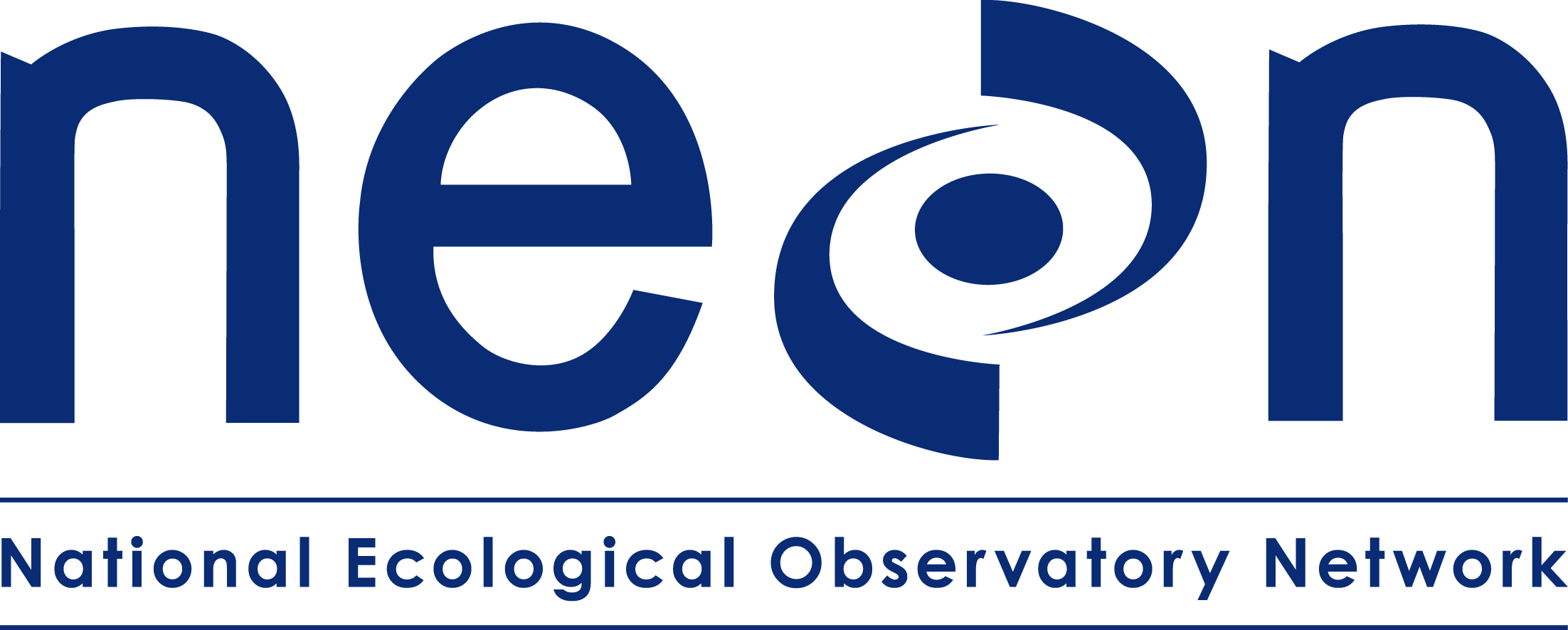
NEON Data Education Fellows FMN
The National Ecological Observatory Network (https://www.neonscience.org/) and QUBES are pleased to offer networking and professional development opportunities through this Faculty Mentoring Network for faculty interested in implementing or adapting existing NEON teaching materials to their educational settings. Faculty who already teach using NEON data and would like to use the FMN to improve and transition it to an open educational resource are also invited to participate. More information on NEON educational materials can be found on the Teaching Resources page (https://qubeshub.org/community/groups/neon2018/teaching_resources).
Applications are due December 14, 2018. Please visit https://qubeshub.org/community/groups/neon2018 for additional information and instructions on how to apply.

Serenity Now! FMN
Are you interested in developing student’s data science skills in your biology course? Apply now to join us for a Spring 2019 Serenity Now! QUBES Faculty Mentoring Network (FMN).
Participants in this FMN will customize and implement data-driven modules in undergraduate life science courses using the software tools Radiant and Serenity. Radiant and Serenity are platform-independent browser-based interfaces to bring data science tools to the classroom, with a particular focus on data visualization, communication, and bridging students to R scripting skills. Accepted applicants will customize and implement newly designed educational modules from a wide range of topics using the Radiant and Serenity platforms. Participants are encouraged to use their own research or class-collected data for these modules. While doing this, they will participate in 1-hour biweekly virtual sessions to collaborate with and support others in the network and receive mentoring.
Applications are due December 15. Participants will be notified by December 21. Please visit https://qubeshub.org/groups/serenityfmns19 for additional information and instructions on how to apply.
|